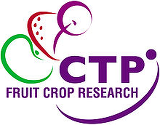Reference: CTP_FCR_2020_3
Supervisors: Dr Richard Harrison (NIAB EMR), Prof Jim Dunwell (University of Reading)
This student will be registered with the University of Reading. Beginning in October 2020, the successful candidate should have (or expect to have) an Honours Degree (or equivalent) with a minimum of 2.1, in Plant Science, Plant Biology or other related science subjects, ideally with an emphasis on plant genetics or plant pathology.
Background
It is well established from field studies that application of excessive nitrogen can lead to weak growth and enhanced susceptibility to a range of pathogens, especially necrotrophic pathogens. The enhanced disease susceptibility is often attributed to physical alterations in rapidly developing tissues, e.g. micro-cracks in plant stems. However, there is an increasing body of evidence that suggests that nitrogen status directly affects the ability of pathogens to infect the plant. For example, glutamine synthetase encoding genes have been shown to be induced following infection. In response to necrotrophic pathogens and pathogens triggering resistance, more N metabolism genes are differentially regulated, suggesting that pathogens target N metabolism directly. This studentship will examine whether there is evidence for this phenomenon in the Rosaceae, specifically strawberry and apple.
Objectives and approaches
This studentship will examine two potential hypotheses, by which both foliar and root pathogens may modulate plant immunity and disease:
- N-related gene expression can be directly affected by pathogen infection.
- Nitrogen status alters plant immune responses and thus the plant’s response to pathogens.
This studentship will explore the effect of N (NO3) levels on both responses to biotrophic pathogens and necrotrophic pathogens, using highly controlled growth studies in both apple and strawberry. Using a range of molecular techniques, key genes involved in both plant immunity and N regulation will be studied under these conditions, to test the three possibilities outlined above.
The research work will be divided into four work packages (WPs), each with clear deliverables.
WP1: Developing a robust assay to study alterations in N metabolism through tagging of N-responsive reporter genes
WP2: Tagging and localisation of key immune system markers in foliar and root tissues
WP3: Assessing cross-talk between N-sensing and immune signalling upon infection with biotrophic pathogens
WP4: Assessing cross-talk between N-sensing and immune signalling upon infection with necrotrophic pathogens
Training
This will provide a student with training in both plant nutrition and molecular biology, spearheading the development of this understudied area of perennial crop biology.
Application
Anyone interested should return the application and equal opportunities forms to recruitmentctp@emr.ac.uk citing the reference before the deadline of 28th February 2020.
Contact Dr Richard Harrison (richard.harrison@niab.com) for an informal discussion.
